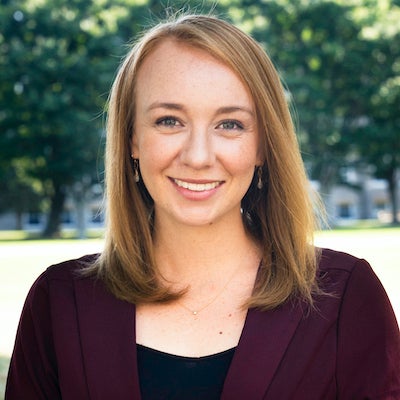Emily Diamond, assistant professor of communication studies and marine affairs, was the recent recipient of the 2022 Research and Scholarship Excellence Award from URI’s Division of Research and Economic Development. “My research investigates how various aspects of messaging, including framing, source effects, and identity relevance, impact environmental attitudes and behaviors,” she says. “I am fascinated by how the way we as a society talk about environmental issues shapes how people perceive them.” Her past research explores how “using messages that resonate with different identities, such as parental, rural, or place-based identities, can make environmental messaging more effective.”
Diamond joined URI’s faculty in 2019, and says the partnership between the Harrington School of Communication and Media and the College of the Environment and Life Sciences drew her to campus, as well as the opportunity to collaborate with experts in the Metcalf Institute, the Coastal Institute, and the Graduate School of Oceanography. “URI has invested in becoming a leader in the field of environmental communication,” she says. “And URI prioritizes interdisciplinary education and research, making this a perfect fit for investigating big questions that don’t fit into a single discipline.”
Early on in her career, Diamond realized that public opinion on policy issues was influenced by how information on these issues is presented. Interested in better understanding how effective communication strategies build bipartisanship on pressing environmental and coastal issues, Diamond’s appreciation for URI’s commitment to interdisciplinary initiatives doesn’t end at involvement in the classroom. “I love how connected URI is to the community,” Diamond says. “We prioritize engaging with community groups, doing research that positively impacts our local community, and linking students with community organizations through experiential learning. These kinds of opportunities help our students apply what they learn in the classroom to the real problems facing our local environment.”
-By Anna Gray

